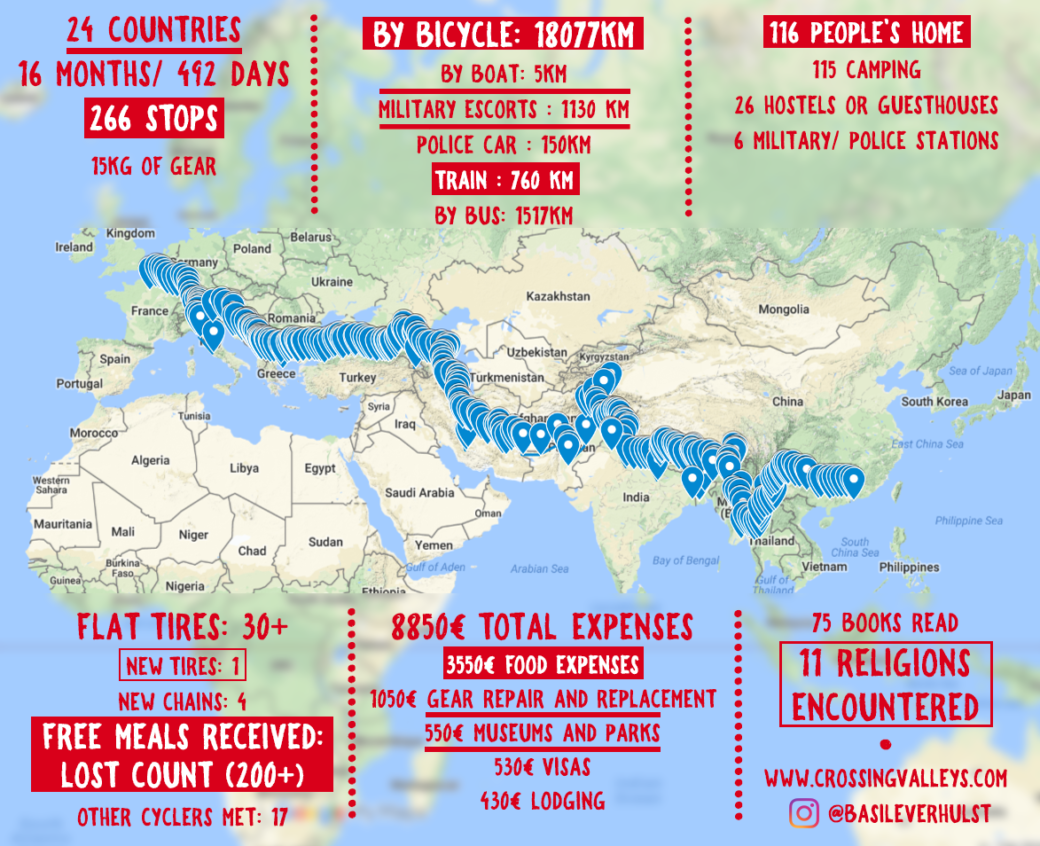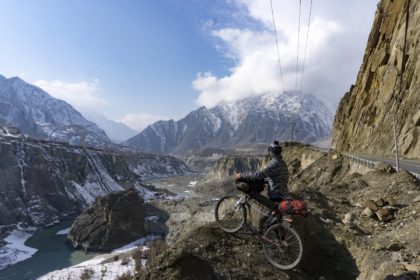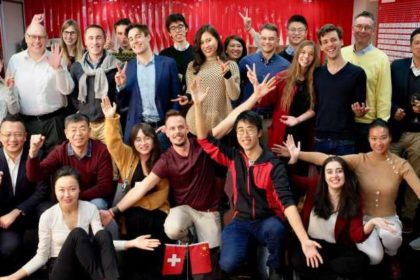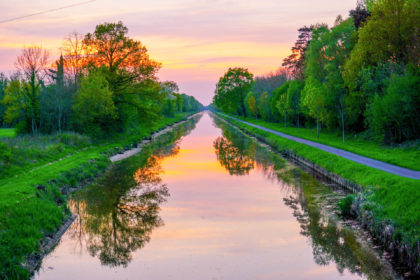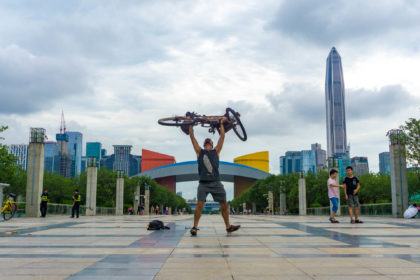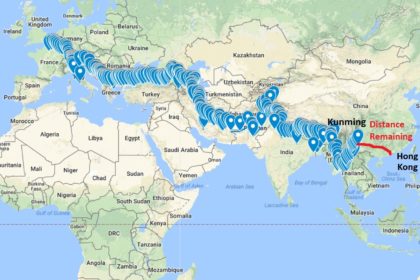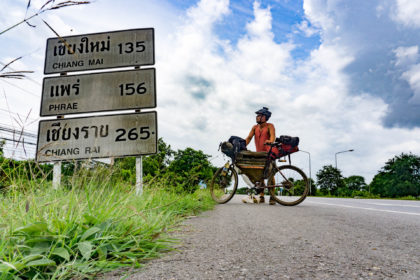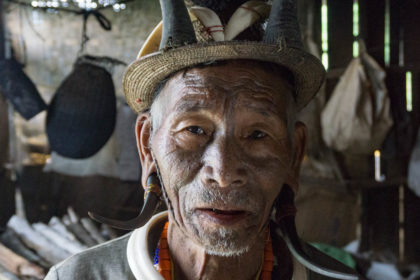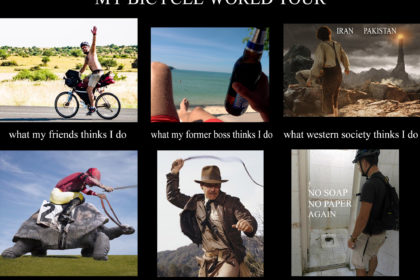AS I take a step back to reflect on the what I learned from my bicycle trip, I realize that it is difficult to distill such a vast learning experience into a single page. The journey has affected me in almost every possible way. What I learned remains mostly unconscious. Before I started my journey, I felt my life surrounded by a bubble of habits and expectations. Crossing these 24 countries alone for 16 months was a drastic bubble-burster, a moment of hitting ground reality. I’d like to share with you what I have learned on that road… and keep it as an important reminder for myself when i get pulled back into the inescapable bubble.
N.B: I’m aware that my writing below would require more explanation, but I tried to keep it brief and readable.
Some things i learned about the world
Technological change seeps into every corner of the earth. Everywhere I traveled, I have seen smartphones, especially among the younger generation. Most small remote villages I have passed through also had 3G coverage.
Culture is becoming uniform, and many of the local traditions are getting lost. As a consequence of the previous point, the people of our world are ingesting an increasing amount of information outside their locality, and their role models and aspirations are changing. The gap between the last two generations is unprecedented. Local languages and customs get lost in favor of larger regional or international trends.
Religion and tradition keep a strong foothold in most people’s lives. Many developing countries idealize the west in terms of lifestyle. But during my trip, I have observed how tradition and spiritual beliefs bind people together, contrasting the occidental individualism. Religion is more present in most people’s daily life than in western countries. I was really struck by the selflessness and the support people have within their families.
Most people I met are born in an environment that doesn’t allow them to pursue their deepest passion. The reader of this post – you – might have received a good education relative to world standards. But many young people I met, even in big cities, had to substitute their study interests with work to financially support their parents. The other most common limitations I found was lack of education, infrastructure and support groups, and the constraint of their passport.
As of today, most people in developing countries don’t correctly utilize the potential of internet technology. For example, while small business owners use smartphones, they don’t know how to register their trade on google maps, and even less so to post the information on a website. Even among younger generations, smartphones are used almost exclusively for social media and games, because no one in their friend circle uses Google search or Wikipedia to answer questions.
We are afraid (of each other), but often there’s no reason to be. The encounters during the trip followed the same pattern: At the beginning, the locals and myself were afraid of trusting each other, coming from completely alien cultures. At the end, it was hard to say goodbye to each other. The countries you are the most afraid of might most surprise you. If you make the first step forward, you will be rewarded.
Some things I learned about myself
In unfamiliar places, look for unfamiliar wisdom. What you can learn from a different culture or religion is not on the map of things you think you can learn. That means you have to approach every person knowing they can teach you things you can’t yet imagine. And to listen more than you speak.
The more goal-oriented, the less present I was. If i had a fixed cycling destination in mind for the end of the day, I would usually achieve more distance. But most meaningful encounters and surprising discoveries happened on open-ended days, because I would have time to listen to my environment. This trade-off between narrow and wide field of vision happens at every second of our lives.
The mind-body relationship can be explored in infinitely deep ways. I have seen across continents how different types of food affect my energy to cycle. How being in the rhythm of the sun and moon affects my temper. Such an intense and lasting effort made me understand my body in new ways, and made me realize how disconnected i was from it all this time.
You can’t repress bad emotions, you can only find their origin and let them fade. Biking alone for long stretches made me sometimes very aware of my emotions, because there was no way to distract away from them. Whatever feeling I pushed back with other pastimes surfaced again biking on the next stretch of bare land. The only way to let the emotion fade was to listen to it first and live it out. In daily active life, the same principle holds true, but it is less obvious because of the abundance of distractions.
No beliefs are superior to others. We all know that statement intellectually, but there are shades of grey to the degree we live by it. It is very difficult to identify the lenses through which we see and judge the world. When we judge values that cannot exist within the framework of our lens – say conservative Islam or Chinese communism – it is less because we fail to understand the values themselves, but rather because we fail to understand the lens through which they are interpreted. This trip was a 16-month mission to seek out different lifestyles, values, and religions. This long time gave me a sense of the environments in which these beliefs emerged. Make no mistake: If you were born in the shoes of those whom you judge today, you’d think exactly as they do.
You might find your purpose on the roads less traveled. I’m going to end on this more cliché saying, because I really believe this can change our lives. This bicycle trip didn’t bring anything to my CV. It was a road less traveled, full of unknowns; but the day I was on it, I knew I was doing the right thing. As we advance through our life and career, society presents us different paths for the attainment of well-being. There is a gravitational pull towards accepted measures of success. What we don’t know, is that there are millions of paths that we haven’t yet discovered. Some of them are less predictable – but might resonate much more with who we really are. The truth is, we are free – we are free to liberate ourselves from the constructs that shape our lives, and to discover on our own what is true and what is important.


